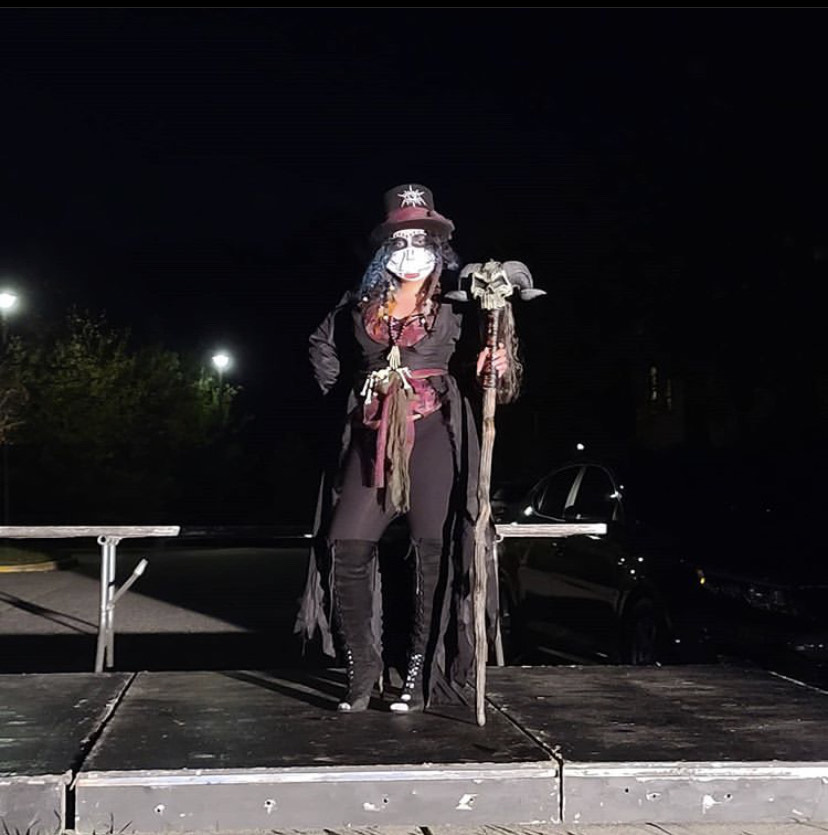Sasha Saxon|Marlin Chronicle
Internships have become a large part of meeting college graduation requirements. When students think of internships, it is usually synonymous with completing grunt work that employees don’t want to do, for free. Nevertheless, members of academia and employers often stress the invaluable nature of interning. Statements such as “employers hire nearly 60% of interns for permanent positions,” said by Forbes, may be true, but when college student interns don’t receive financial compensation for their labor, their degree program or institution must ensure they get something out of it.
Regardless of the inherent perks of an internship, students who try to balance the many costs of college may find it difficult to shell out gas money for internship transportation. “Students are likely to spend a lot of money during summer internships and ‘can expect to spend upward of $7,000 on housing, food and transportation related expenses,’” Forbes said. Therefore, “a huge misconception remains that the experience and academic credit that come with unpaid opportunities are worth significantly more than an intern’s meager paycheck,” Forbes said.
At Virginia Wesleyan, there are two main internship opportunities: junior internships and senior internships. Senior internships are more extensive, as opposed to junior internships, and because of this, “they could be more inclined to pay interns,” junior intern Steven Harper said. “Having to be at an internship as your job takes away from a student being able to get a paying job to support themselves,” Harper said. Fortunately, “roughly 75% of internship postings seen by students in 2022 were paid positions,” Forbes said.
Virginia Wesleyan senior Britni Arrington is one such student engaging in an unpaid internship for class credit. Currently, she works with the Eastern Virginia Medical School, in their Art Therapy program. For an average of ten hours per week, Arrington assists with data entry, conducts community outreach and is privy to class observation.
Despite being unpaid, Arrington expressed appreciation for the insider look this internship has granted her to the art therapy graduate program– where she’s been accepted for Fall 2024. “It’s the perfect thing to get me comfortable in this space before I have to dive in with full commitment,” Arrington said. For her, community work and class observation are invaluable. “I am well acquainted with a lot of my professors and people who could be my upperclassmen, so I have a lot of connections if I needed help,” Arrington said. However, when it comes to the tedious task of transcription, there isn’t as much fun involved. “It took me three hours to go through fifteen minutes of conversation,” Arrington said. For this, she admitted some pay would be nice.
Luckily for many college students, this trend may be on its way out. According to The Virginian-Pilot, a survey of college seniors, done by the National Association of Colleges and Employers, showed that out of the 63% of those who had completed internships, 59% of those were paid.
“Students aren’t taking traditional unpaid internships anymore,’ said Michelle Simmons, the project director for 757 Regional Internship Collaborative in an article with the Virginian Pilot. “If you’re going to be treating them as an employee, you should be paying these kids,” Simmons said. The bigger the company, the more likely it has been that they are willing to pay interns.
Virginia Wesleyan senior Emily Moody is currently interning with a small business, All Good Granola owned by Bryan Daniels, for class credit towards her major and Batten Honors College requirements. While for the most part Moody remains unpaid, Daniels does offer some compensation for assistance in farmer’s market sales over the weekend. Similarly to Arrington, Moody averages ten hours per week, but this internship “centers around social media and entrepreneurship and marketing,” a convenient combination for Moody’s major, minor and passions. During the week, Moody can work remotely or on-site. She takes orders, learns behind the scenes, creates social media coverage, researches marketing and receives mentorship from her boss.
Moody communicated how it may be fair to remain unpaid for an internship based on how many hours one works. In her case, her professor allows students to use class time for internship hours and while the internship may be a bit more time extensive than a traditional course, Moody enjoys working and learning alongside Daniels.
“If I were being paid, I would feel a lot more stressed out and I would feel like I couldn’t learn and ask as many questions,” Moody said. The pressure to perform, for some, may lessen their ability to learn from the experience.
On the opposite side of the spectrum, senior Danielle Perry is paid for her internship with a family owned company, Stewart & Company Certified Public Accountants.
She has participated in two internships with them. Perry has received extensive training on how to organize and prepare business licenses, property taxes, corporate and partnership tax returns and taxes for individual clients. Perry undertook the position for experience, not class credit or graduation requirements, and hopes to work with them post graduation.
The state of Virginia has begun to notice this trend, setting preparations in place such as “a $250,000 grant from the State Council of Higher Education for Virginia,” according to The Virginian-Pilot. They want to give more opportunities to students in Virginia and aim to make it easier to connect them with the necessary companies. The Virginian-Pilot reported that for most internships, “the goal of the internship program is to have students bridge the gap between what they are learning in school and applying it to their career.”
Certainly, the students of Virginia Wesleyan understand what internships can do for their careers with and without pay. Fortunately, the declining trend of unpaid internships has gained enough traction to warrant change and future students may see an influx of internships that provide financial compensation for their efforts.
By Brian Madden
bvmadden@vwu.edu



